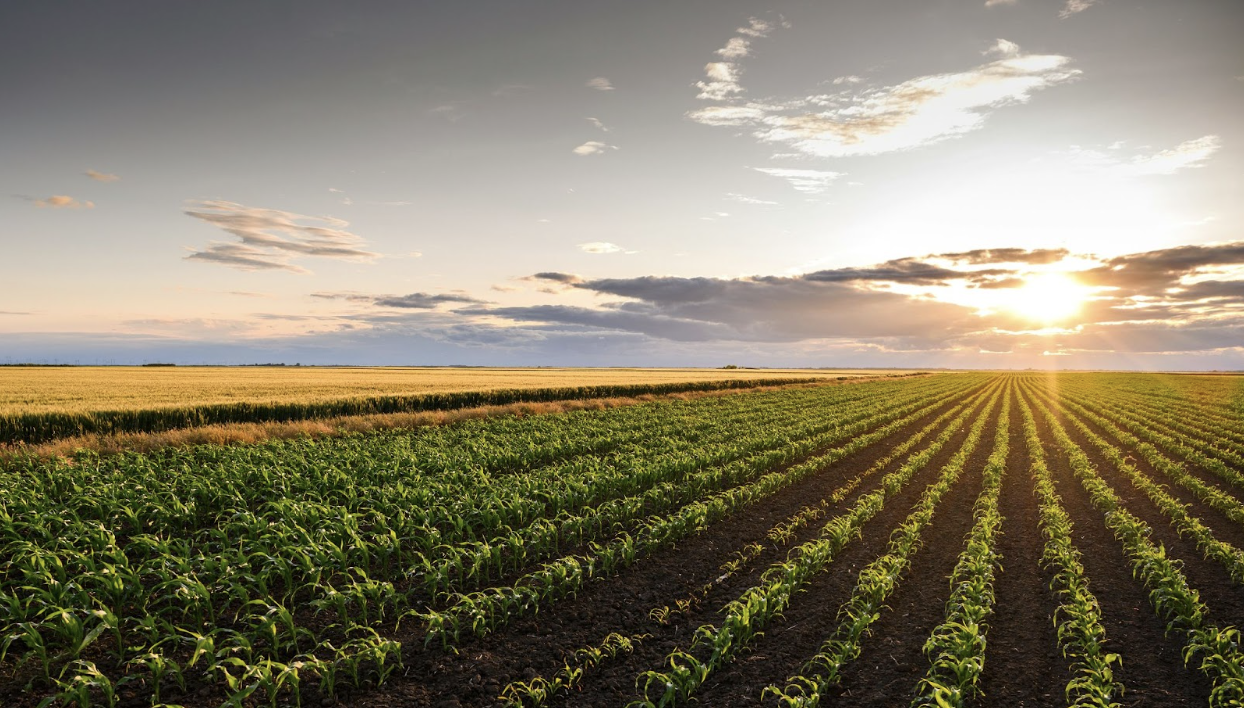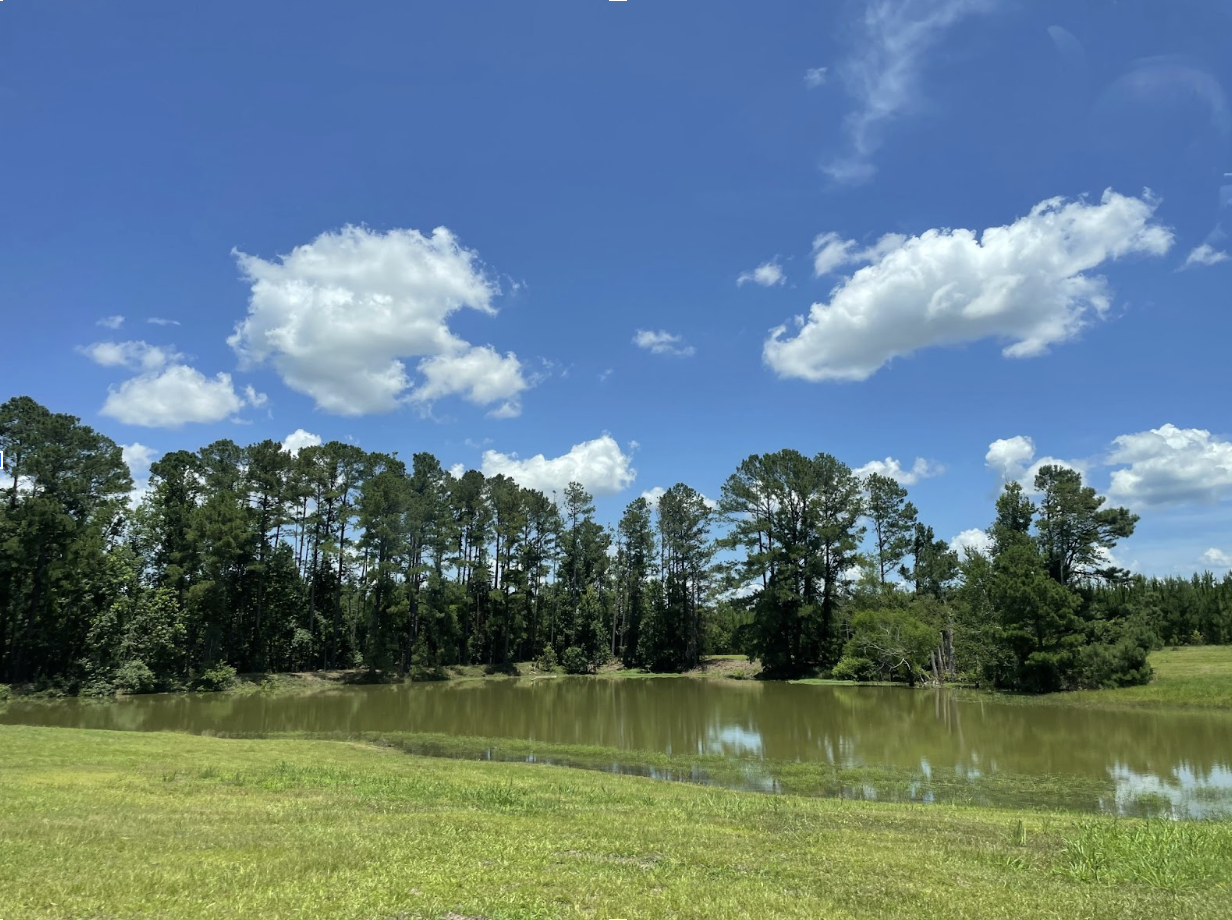Land Core Newsletter - September 2025
Getty Images for Unsplash+
Dear friends & colleagues,
With a surprisingly busy summer behind us and harvest season well underway, the shifting weather serves as a natural reminder that we've entered the final quarter of 2025.
Since our last newsletter, our team has been actively engaged in advancing soil health initiatives across the political spectrum. During August meetings on Capitol Hill, we attended a MAHA-inspired event on the Future of Farming at The Heritage Foundation, co-hosted with American Regeneration, underscoring the widespread political appeal of soil health and food systems that center human health.
This was followed just last week by the MAHA Commission’s release of the Make Our Children Healthy Again: Strategy. While the release had its share of headlines and mixed reactions, it also included soil health as a highlighted policy priority and an important point of common ground. As detailed in our Rooted In Health section below, the report delivers significant wins for soil health, advancing our ongoing efforts to build understanding of the critical connections between soil health, human health, and farm profitability.
Renewed Farm Bill negotiations have also resumed in the House, and our team is tracking them closely to advocate for soil health priorities.
Lastly, our academic colleagues building the Risk Model are ‘back to school’ and hard at work continuing to quantify the risk-reducing benefits of soil health practices, and preparing new sets of modeling results for publication very soon!
Now more than ever, we’re committed to strengthening our relationships across sectors. Read on for more news, analysis, events - and to meet our newest team member, Lily!
Warmly,
The Land Core Team
Catch Us In Person Today!
September 23, 2025 – “Our most natural lever – are we ready for a regenerative world?”
Land Core’s co-founder, Aria McLauchlan, joins as a panelist to discuss the future of regenerative systems and the role of healthy soil in supporting resilient farmers and strong food systems.
Join us today in person or view the recordings for The Hub Live, Climate Group’s two-day event, featuring Aria’s talk and more.
Our team will be in NYC from September 22-26, so please reach out to lily@landcore.org if you’re interested in connecting in person!
Support Land Core’s Work
🌱 Donate to Land Core! The common good in working to ensure we have healthy soil to grow clean, nutrient-rich food in America is more certain and important now than ever before. Will you pitch in to help us keep up the momentum? Every dollar goes a long way.
Policy Updates
Getty Images for Unsplash+
Ag-Appropriations (FY26): The annual appropriations process is in the national news once again, as Congress works up to the wire to fund the government and avoid a government shutdown by September 30. However, the Agriculture-FDA bill seems to be moving ahead, according to the House Appropriations Chair. ICYMI: The House and Senate passed differing versions of the FY2026 Agriculture Appropriations Act (with a $25.5 billion price tag in the House version and $27.1 billion in the Senate), and have been working to reconcile these differences in conference committee. See details of the appropriations bills in Land Core’s tracker.
Farm Bill - Recap: While major pieces of the 2025 Farm Bill, like commodity support and nutrition programs, were included in the One Big Beautiful Bill Act introduced back in May, key negotiations remain around conservation funding, crop insurance reforms, rural development investments, ag research, access to credit for farmers, and a host of other issues. Lawmakers face mounting pressure to resolve these critical issues and determine what provisions a streamlined "Skinny Farm Bill" might realistically encompass. Negotiations are underway, but the bill appears unlikely to pass before Congress finalizes FY26 agriculture appropriations.
USDA Reorganization: The USDA’s sudden reorganization under Secretary Rollins is drawing sharp criticism from conservation and agriculture advocates, who fear it will gut the agency’s capacity to support farmers and rural communities. With key staff positions cut and budgets frozen, groups warn that the delivery of conservation programs and technical assistance is at serious risk.
Action Opportunity: Stakeholders, including agricultural and nutrition partners who interface with USDA, are encouraged to provide feedback by emailing reorganization@usda.gov. The comment period deadline was extended to September 30.
Getty Images for Unsplash+
Rooted In Health
In D.C.: Land Core recently participated in a soil health and regenerative agriculture event, co-hosted by American Regeneration and The Heritage Foundation. This brought together key voices in the regenerative agriculture movement to advance practical solutions for farming communities in the context of the new administration. Calley Means, a top advisor to Health Secretary Kennedy Jr., spoke about working to center soil health in public health policy in the subsequently released MAHA Strategy report. During a closed-door policy roundtable later in the day, Land Core advocated for crop insurance pricing that rewards soil health practices. Watch a recording of the public event here.
A Win for Soil Health: On September 9, the MAHA Commission released its official Make Our Children Healthy Again: Strategy, which includes soil health and technical assistance for farmers transitioning to regenerative practices as a clear opportunity area. While the report has faced significant criticism for backing away from pesticide restrictions, its recognition of soil health marks important progress in agricultural policy. Land Core commends the Commission's prioritization of soil health and the understanding that regenerative practices boost yields, profitability, and human health.
We now urge the Commission to continue to develop concrete frameworks and policies to advance these objectives. Read more about Land Core’s analysis and response to the MAHA Commission’s strategy report here.
Risk Model Tid Bits
Our incredible research team of UC Berkeley, Rice University, Michigan State University, and University of Arkansas faculty, postdocs, and graduate students continues to work on an actuarially sound predictive model that quantifies how soil health practices can reduce agricultural risk.
Current work includes expanding into additional Midwestern states, expanding our soon-to-be-open-source cover crop database (filling a critical gap in publicly available, field-level agriculture data), and analyzing how varying weather conditions amplify or diminish the risk-reduction benefits of diversified crop rotations.
Ready for a demo? If you work in farming, agricultural finance, insurance, policy, or conservation, we'd love to show you the tool in action. Contact us!
Follow Land Core’s Socials
We’re Hiring!
Land Core is seeking a talented, pragmatic, and dedicated Policy Manager to advance the organization’s policy priorities, government affairs, and educational initiatives. This role will lead outreach to relevant agencies and Congressional offices, help build coalition support for soil health-focused initiatives, and expand Land Core’s capacity to leverage current and emerging legislative and agency opportunities to strengthen soil health.
Please note that this full-time role requires frequent in-person meetings with partners and policymakers in Washington, D.C., in addition to remote work. More details here.
Bill Tracker Updates
As we move into this fourth quarter (can you believe it?!) of the 119th Congress, we’re continuing to add new and reintroduced bills to our Bill Tracker!
Keep an eye out for a dedicated Bill Tracker email in the coming week, where we’ll dive into key legislation shaping the future of soil health. Our focus aims to demonstrate a practical, bipartisan approach to agriculture policy that addresses soil health in the context of agricultural productivity, sustainability, and economic viability.
Sign up here to receive our Bill Tracker Alerts!
Welcome, Lily!
We’re excited to welcome Lily Daniel to Land Core as our new Programs Manager! Lily brings experience and passion for food access policy, food waste reduction, and improving nutrition in public institutions. She's committed to advancing Land Core's mission to strengthen climate and financial resilience in farming communities. [Learn more about Lily and our team here.]
In Case You Missed It
Calling all farmers in Montana, Wyoming, Nevada, Colorado, and Idaho!
Probing Our Country's Soil Health is a new NRCS-funded project seeking farmer and rancher participants to build a national soil health database. The anonymous data will expand the Soil Health Assessment Protocol and Evaluation (SHAPE) tool, providing better references for farmers to understand and improve soil health. Learn more here, and select a time here to speak with a program facilitator.
Upcoming Events
October 7-8, 2025 – RFSI (Regenerative Food Systems Investment) Forum (Minneapolis, MN)
This gathering focuses on how to invest capital in regenerative food and agriculture for both financial return and environmental/social impact. More info here.
October 14-15, 2025 – Transform Food & Agriculture (Minneapolis, MN)
This conference will bring together C-suite leaders from across the food value chain to address the industry's massive transformation driven by geopolitics, growing populations, supply chain transparency needs, and sustainability pressures. The event focuses on uniting, scaling, and transforming for a climate-positive food future. More info here.
What We’re Reading
Land Core Image
Specialty Crop Reps Push Congress for Farm Bill, Labor Reform
This article highlights how specialty crop representatives testified before the House Agriculture Committee on September 16, arguing that despite some provisions in the "One Big Beautiful Bill" passed earlier this year, specialty crops still need additional support through a slimmed-down farm bill, including better safety net options and crop insurance coverage.
By Rebekah Alvey, Civil Eats | September 10, 2025
MAHA Strategy Recognizes Importance of Agriculture
This blog post from AFBF demonstrates how the MAHA Commission’s strategy report emphasizes the vital role of agriculture in improving public health, reflects a deeper understanding of farming practices, and acknowledges the importance of science-based improvements in food production. AFBF President Zippy Duvall reflects on the dialogue with MAHA Commission leaders, highlighting the need for collaboration with agricultural stakeholders.
By Zippy Duvall, American Farm Bureau Federation | September 10, 2025
As Extreme Weather Increases Flooding on Farms, Federal Support for Climate Resilience Evaporates
As extreme weather and flooding intensify, federal support for environmental resilience shrinks, with the Trump administration initially freezing conservation funds and later cutting climate-specific program funding. The article examines how farmers struggle to implement flood mitigation measures and face limited technical assistance due to steep USDA staffing cuts.
By Meg Wilcox, Civil Eats | September 10, 2025
USDA’s 2025 Farm Sector Income Forecast
The USDA's Economic Research Service projects a significant rebound in U.S. farm sector income for 2025. Net farm income is expected to rise by $52 billion (40.7%) to $179.8 billion, while net cash farm income is forecasted to increase by $40.1 billion (28.5%) to $180.7 billion, both surpassing their 2005–2024 averages in inflation-adjusted terms. This growth is driven by a $24 billion (4.7%) rise in total farm cash receipts, with animal and animal product receipts increasing by $30 billion (11.2%), offsetting a $6.1 billion (2.5%) decline in crop receipts.
By U.S. Department of Agriculture, Economic Research Service | September 3, 2025
Unlock financial benefits of soil health across all stages
This article explains how farmers of all experience levels are seeing solid economic and resilience benefits from adopting soil-health practices like reduced tillage, cover crops, biologicals, and precision nutrient management.
By Nate Birt, Farm Progress | September 3, 2025
Should Regenerative Farmers Pin Hopes on RFK Jr.’s MAHA?
The article questions whether regenerative farmers should trust RFK Jr.'s MAHA movement, as President Trump's administration cuts grants to diverse farming organizations. Despite MAHA's calls to regulate harmful pesticides like glyphosate, Agriculture Secretary Rollins prioritizes "crop protection tools" for farmer prosperity, and Congress considers shielding pesticide companies from lawsuits.
By Lisa Held, Civil Eats | August 19, 2025
Transforming Food and Agriculture Through a Systems Approach
FAO's new report offers a practical framework for coordinated action within agrifood systems. The report specifically identifies soil depletion as a key example of systemic problems and recognizes that healthy soils are fundamental to transforming agrifood systems, requiring coordination between conservation practices, productivity goals, and environmental protection rather than treating these as separate concerns.
By Food and Agriculture Organization of the United Nations | July 2025
Less rain, more wheat: How Australian farmers defied climate doom
This article highlights how Australian wheat farmers are boosting yields despite 20% less rainfall over 30 years by embracing regenerative practices like no-till farming, deep ripping, crop rotation, and soil amendments. Their close collaboration with scientists and use of innovative techniques are helping improve soil health and water use efficiency in challenging conditions. These successes offer valuable lessons for dryland farming worldwide and demonstrate how soil-focused strategies can enhance resilience and food security.
By Peter Hobson, Reuters | July 29, 2025
Trump’s tax policy bill expands subsidies. Not all farmers will benefit
President Trump’s new tax bill includes a $60 billion boost to farm subsidies, but the benefits are expected to flow mainly to large agribusinesses. This article explores how many smaller and conservation-focused farmers may be left out, raising concerns about equity and long-term resilience. The bill highlights a growing divide in how federal support is distributed across the agricultural landscape.
By Linda Qiu, The New York Times | July 30, 2025
Earth’s underground networks of fungi need urgent protection, say researchers
A groundbreaking study maps the world’s underground fungal networks and finds 90% of these biodiversity hotspots are unprotected. Mycorrhizal fungi, which support 80% of plants and store billions of tons of carbon, are essential to soil health but largely ignored in conservation policy. Researchers say it’s time we protect what’s beneath our feet.
By Taro Kaneko, The Guardian | July 23, 2025
Opinion: Planting hope in uncertain soil
In the face of unpredictable conditions, soybean farmers are doubling down on sustainability by planting cover crops, building soil health, and embracing climate-smart practices. In this opinion piece, United Soybean Board Chair Philip Good highlights how these efforts, along with innovations like soy-based biofuels, are strengthening rural economies while benefiting the environment. Even in uncertain soil, farmers are planting seeds of resilience and progress.
By Phillip Good, Agripulse | July 18, 2025








